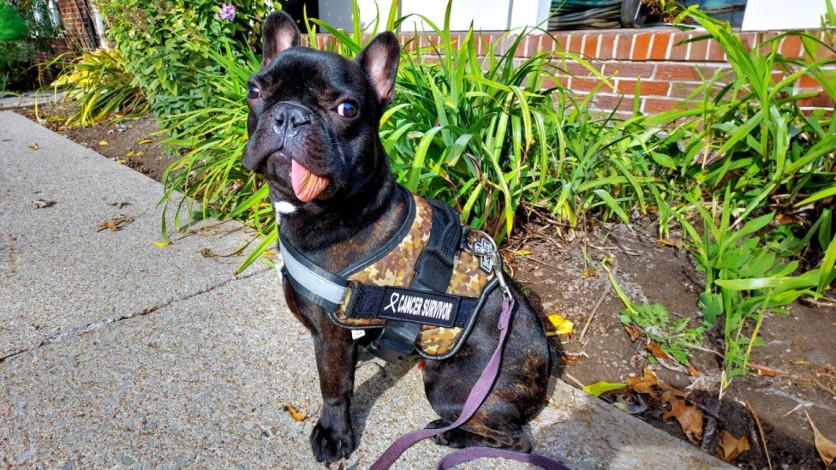In a medical breakthrough, Tyson, a 3-month-old French Bulldog, has astounded the veterinary community with an extraordinary recovery from a rare and aggressive cancer.

Tyson, a 3-month-old French bulldog, had his jaw regrow after losing a majority of his lower left mandible due to cancer.
Tyson's Cancer Surgery
Originally admitted to Cornell University's Dentistry and Oral Surgery Service for a cleft palate procedure, Tyson's primary veterinarian identified a malignant tumor on his jaw - specifically, an oral papillary squamous cell carcinoma, the second-most prevalent oral cancer in dogs, notably affecting younger individuals.
Facing a life-threatening situation, Interesting Engineering reported that surgeons undertook the challenging task of substantial removal of Tyson's lower left jaw, resulting in a significantly compromised mandible.
Despite the daunting nature of the procedure, Tyson's owners, Melissa Forsythe and Mike Lacagnina, opted to proceed, providing their puppy with an opportunity for survival.
Remarkably, the subsequent development surpassed all expectations, as Tyson's jaw exhibited spontaneous regrowth, marking a historic occurrence and establishing him as the inaugural dog to manifest such an unprecedented recovery.
In an extraordinary turn of events, Tyson's jaw began regenerating within weeks of his surgery, defying all expectations. The surgical team, led by Dr. Alexandra Wright highlighted the preservation of the periosteum as a crucial factor in Tyson's remarkable recovery.
The thin membrane covering the bone, containing blood vessels and nerves supporting growth, played a pivotal role in the regeneration of new bone and early tumor detection.
Tyson's Recovery
While Tyson's case marks the first documented instance of complete bone regeneration in a dog, Cornell Chronicle reported that the exact mechanism behind this phenomenon remains a mystery.
The surgical team emphasized the need for further research to determine if similar occurrences are possible in other dogs and under specific conditions. Despite reports of partial regeneration in young dogs and children, Tyson's case stands out as an unprecedented event in veterinary science.
Tyson's extraordinary recovery, marked by the functional regeneration of his jaw and successful cleft palate surgery, is a testament to the remarkable resilience of dogs and the advancements in veterinary science.
Despite some differences from the original jaw, Tyson's renewed mandible exhibits functionality, symmetry, and a cancer-free status.
The missing mandibular canal and teeth are minor trade-offs for Tyson's newfound ability to lead a normal and happy life. His owners, deeply moved by his positive outcome, aim to share Tyson's story to inspire hope and support for other dogs facing similar medical challenges.
Dr. Alexandra Wright, the lead surgeon in Tyson's case, considers it the most rewarding in her career, emphasizing the significance of ongoing research to understand the mechanisms behind such remarkable regenerative abilities in dogs.
Documented this unprecedented event in a report published in Frontiers in Veterinary Science, Tyson's journey serves as a poignant illustration of the transformative power of veterinary science and the enduring spirit of our canine companions.
Related Article : New Study Reveals Surprising Trend in Dog Owners Using CBD for Pet Care

ⓒ 2026 TECHTIMES.com All rights reserved. Do not reproduce without permission.




